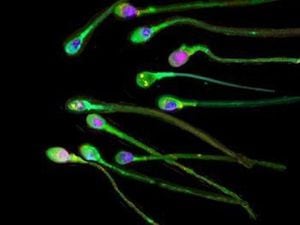Assisted reproduction method infringes women’s human rights, say scientists
Women have been urged to question the suffering they endure during treatment for male infertility.

A widely used treatment for male infertility infringes the “basic human rights and dignity” of women, experts have claimed.
ICSI (intracytoplasmic sperm injection) involves injecting a single sperm directly into an egg in the hope of creating a viable embryo and baby.
Since its introduction in 1992, use of the procedure has soared and in 2014 it accounted for more than half of all assisted fertility treatments in the UK.
Setting out their case in the journal Human Reproduction, the experts – two British and one American – stressed that ICSI was an invasive procedure suffered by women, not men.
They wrote: “In a world in which we claim to be addressing the inequalities between men and women, this is a stand-out example of the infringement of basic human rights and dignity.
“Maybe women undergoing treatment during ICSI can begin to apply pressure at the point of delivery of (their) treatment, asking ‘why can’t you treat him rather than me?'”
The authors of the report, entitled Man Up: The Importance and Strategy for Placing Male Reproductive Health Centre Stage in the Political and Research Agenda, highlight the lack of knowledge about the causes of male infertility despite decades of research.
One of the scientists, Professor Richard Sharpe, from the Medical Research Council Centre for Reproductive Health at the University of Edinburgh, argues that ICSI is a crude method of by-passing a problem instead of treating it.
Speaking at a news briefing in London he said: “The treatments, and they’re quite invasive, are to the female partner.
“So the female is having to bear the burden of the male’s sub-fertility.”
Prior to ICSI treatment, the woman has to be prepared by having her ovaries stimulated with hormone injections.
The next step is to collect her eggs using a probe inserted into the vagina.
After successful ICSI fertilisation, the resulting early stage embryo is inserted through the vagina and implanted into the woman’s womb, or frozen for later transfer.
In contrast, the man’s role is a lot more straightforward – he merely has to produce a sperm sample.
Prof Sharpe said there was still no good term data on the long-term health impact of ICSI on the children it produced.
However the report points out that sperm counts of young men conceived through ICSI are half of those conceived naturally.
It adds that sperm counts “may be a barometer of overall health and longevity”.
Prof Sharpe said: “We still don’t know what causes most cases of male infertility and so of course we don’t have the tools to correct it, because we don’t understand it.
“The flip side of that coin is that we can’t induce infertility for contraceptive purposes. We haven’t developed a new effective acceptable (male) contraceptive since the condom.”
Apart from its dependency on high levels of testosterone, the mechanism of sperm production remained a “big black box”, said Prof Sharpe.
“We should know how that works,” he said. “We still don’t.”
Similarly, the reason for falling sperm counts, which had dropped by 50% in the UK between 1973 and 2011, largely remained a mystery.
The finger of suspicion pointed to events that occurred in the womb, before a boy was born, Prof Sharpe added.
The scientists called for a “detailed road map” for male infertility research aimed at highlighting key unanswered questions and delivering necessary funding.
Prof Sharpe’s co-authors were Professor Christopher Barratt, from the University of Dundee, and Dr Christopher De Jonge, from the University of Minnesota.
